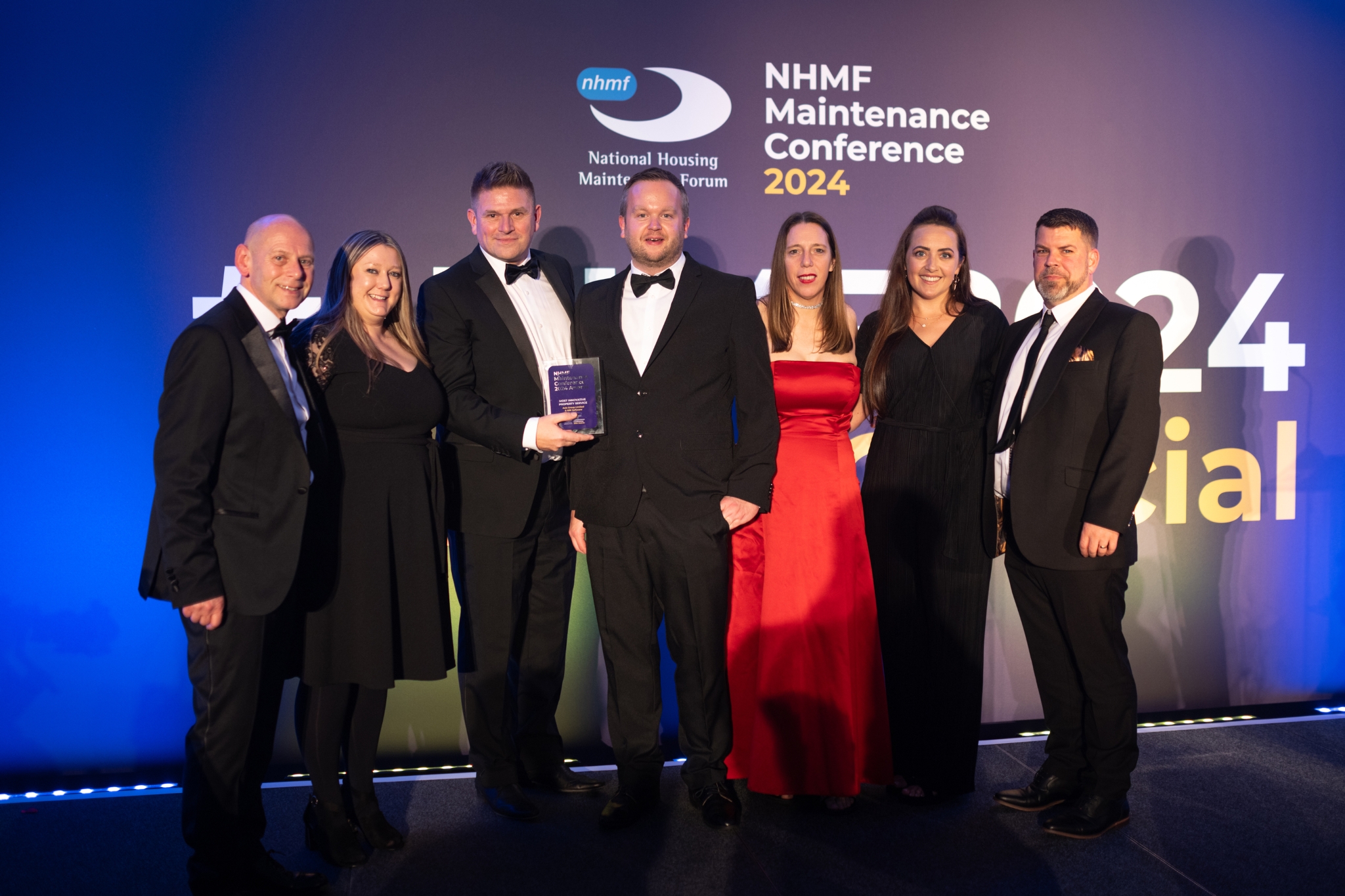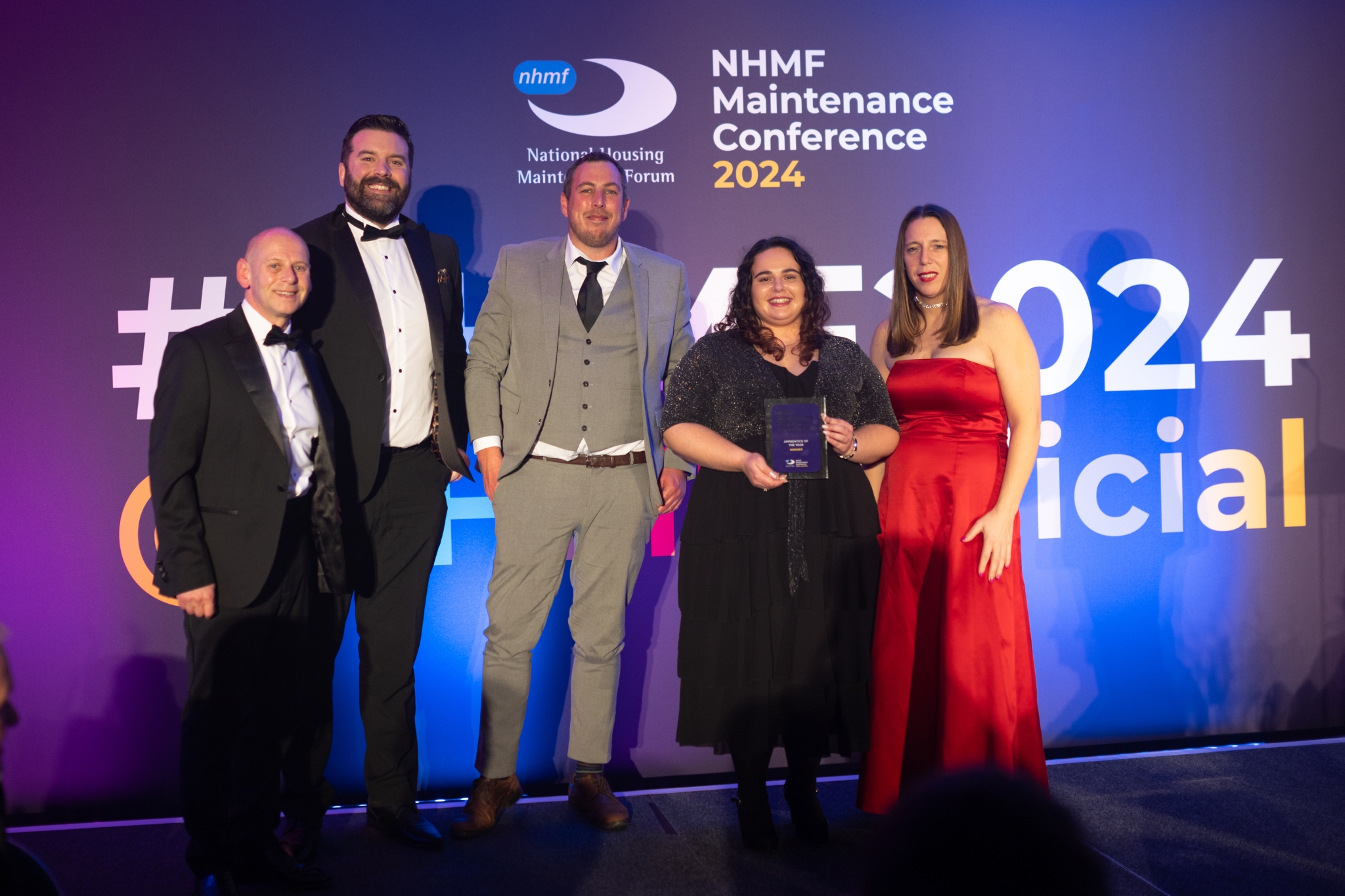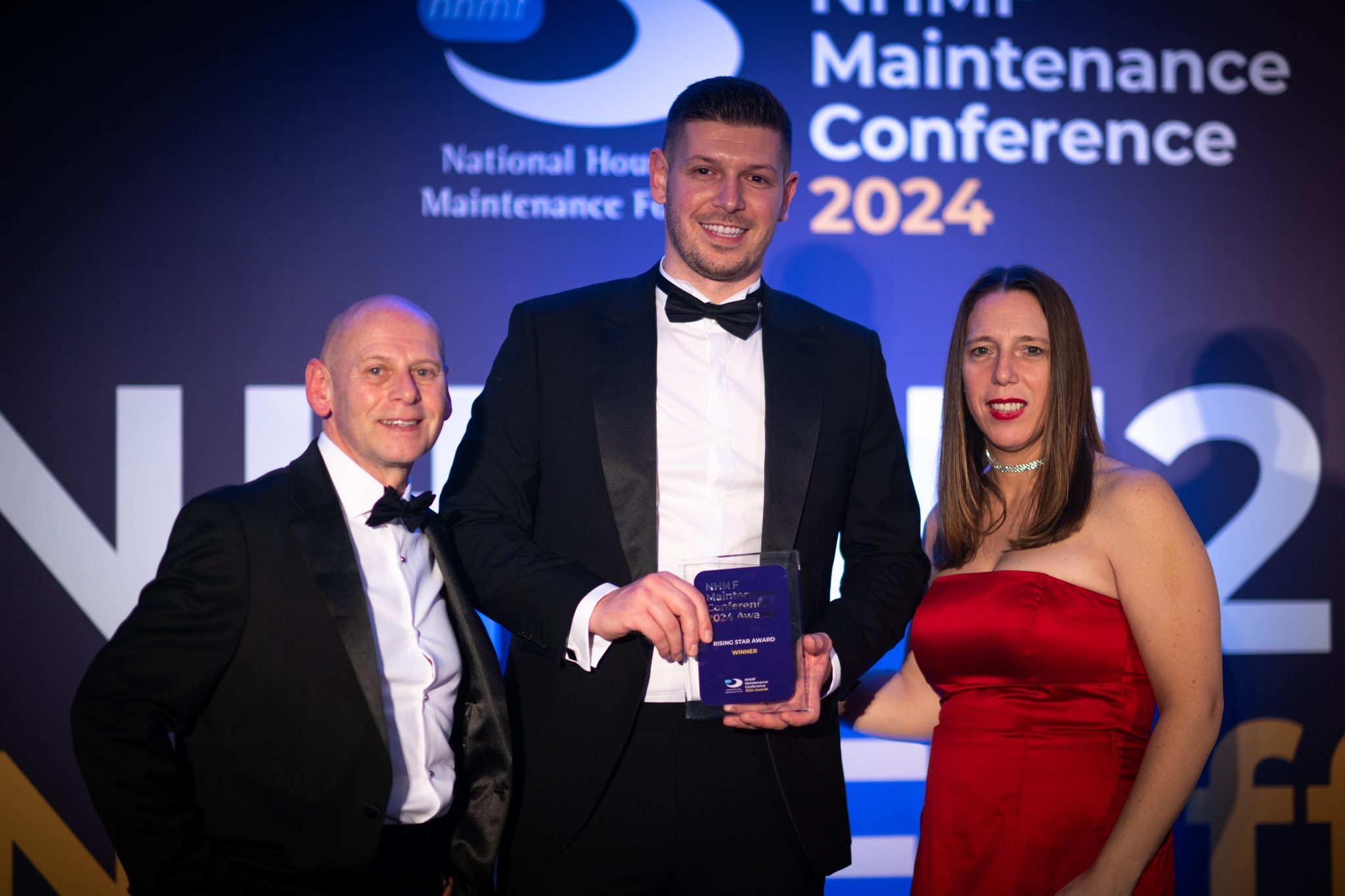NHMF Awards 2024 Most Innovative Property Service Winner: Acis Group & MRI Software
Shortlisters: Runnymede Borough Council, MCP Property Services | Aster Group, Crystal Clear Window Works

Every year, we publish a summary of all our shortlisted entries to showcase our amazing nominees and promote best practice across the sector.
You can read more about the NHMF Awards here.
Winner: Acis Group & MRI Software
Other shortlisted entries (see Appendix)
Runnymede Borough Council & MCP Property Services
Aster Group & Crystal Clear Window Works
Achievements
MRI Software’s Operative Autonomy Repairs solution enables engineers to speak directly with residents, book appointments, diagnose the repair and ensure they have all the tools to ensure a first-time fix, providing a good customer journey. Customers can talk to engineers straight away and the diagnostic-style conversation reduces the likelihood of re-visits, reducing overall fuel consumption and achieves 95% overall job satisfaction from customers. Printing costs have also significantly reduced. This system is applicable to others, especially those with a DLO.
What was the project and what was innovative about the service provided?
Acis have embarked on a repairs’ transformation project, transforming how their in-house engineers proactively respond to everyday repairs and maintenance tasks. With the help of MRI Software’s Operative Autonomy Repairs solution, engineers are now self-sufficient from diary management and job scheduling, right the way through to job completion. Using the streamlined solution, engineers can now speak directly with residents, book appointments, diagnose the repair in-advance of visits and ensure they have all the tools needed to ensure a first-time fix. Engineers have complete ownership and accountability of their jobs and feel empowered to manage their own workloads. Most importantly, residents are kept up to date with appointment reminders and engineer ‘on-route’ notifications, with real-time surveys to ensure residents are satisfied with the work delivered. By better equipping engineers with mobilised data at their fingertips and giving them control over their diary management, Acis have successfully maximised job completion rates through localised working. This has enabled quicker, more cost-effective job completions to a high standard that our residents deserve. Prior to the technology, it may have taken three weeks for a non-priority job to be completed, previously navigated through the planning team. It is now taking on average less than 7 working days. Furthermore, with enhanced reporting, Acis have greater visibility of repair statuses, for example damp and mould specific jobs or jobs in jeopardy. With this improved reporting, Acis have achieved zero out of time repairs, meaning every job is completed on time.
What were the measurable benefits to the client, the contractor, the resident, and the neighbourhood?
Since the launch of Operative Autonomy, Acis have boosted service delivery with multiple benefits experienced all-round. Planning teams who were previously handling responsive repairs now focus their time on other complex or urgent customer matters. Its Customer Support Team no longer chase job updates, as day-to-day repair jobs now go straight to the engineers themselves who are communicating with the customers directly. By simply freeing up phone lines, customer teams can better prioritise and act faster in other areas. As customers are talking to engineers straight away, the time it takes to create an appointment is significantly reduced with engineers booking jobs directly into their diaries. Engineers have the agility and flexibility to schedule jobs and ensure their day is well optimised, sometimes even booking jobs on the same day if they are available. Cost efficiencies arise by localising engineers. With a diagnostic-style conversation taking place with the resident before the visit, engineers are better informed with the scale of the repair and are prepared with the right equipment to ensure a first-time fix. This reduces the likelihood of re-visits, reducing overall fuel consumption. As appointments are being booked in faster, repair completions have also become a lot more efficient, now taking on average less than 7 working days to complete a job. Previously, Acis were not achieving this kind of turnaround, with the average non-urgent repair sitting around three weeks. Whilst MRI Repairs was implemented back in May 2022, Acis have been able to provide engineer feedback to MRI Software, who then refined the software development further. As a result of this collaboration, engineer feedback on the software has been incredibly positive with one engineer stating; “It works very well, I am able to plan my days with regards to bunching jobs together in the same area, I am able to diagnose issues prior to arrival knowing that I have the correct materials on board, I have been getting very positive feedback from customers with regards to the time from reporting the issue to getting them resolved.” The improvement in customer satisfaction is an incredible marker for the success of this project. Acis have seen a significant reduction in missed appointment compensations given to residents since implementation. Since December 2022, Acis have achieved an average 95% overall job satisfaction from customers. This is a real-time response from customers who are responding to a survey via text, driven from the Repairs solution. Customer satisfaction responses are in the region of 300 each month, representing 25% of completed repairs. These survey engagement figures alone are impressive, considering previous transactional surveys were only yielding 5-10 responses per month. One of the many positive feedback comments has been “Grateful to have a landlord like you. Renting has become a dream.” Feedback is also an opportunity for continuous improvement. In the event of a dissatisfied resident, Acis phone them to ensure residents are heard and there is a plan to rectify.
What were the financial costs and measurable cashable benefits over a defined time period?
Whilst there was the initial software cost to take into consideration, Acis are confident that the move to Operative Autonomy will deliver a positive ROI within 12 months. Money is certainly being saved by streamlining the repairs service and redistribution of resources. Acis envisage the operational efficiency savings to be in the region of £50,000/annum, savings which will be put to better use elsewhere within the organisation The improvement of first time fix alone saves 16 tonnes of carbon and around £10,000/annum. There have been instant reductions in unnecessary visits culminating in carbon reductions and time savings for both the engineer and the resident. Printing costs have also significantly reduced as customer satisfaction surveys are now digitally enabled. Acis have introduced contractors to the sub-contractor portal of the Repairs solution, which benefits the organisation with real time data and improved invoicing processes. From a commercial perspective, and working with different suppliers for materials and supplies, Acis for the first time are getting greater visibility in costs thanks to MRI Repairs. With better visibility of current spend across various suppliers, decisions can be made to negotiate better contracts and seek out better pricing on supplies and materials.
How relevant is this as an example that might be followed by other organisations?
Social housing providers, now more than ever, need to seek out ways of driving efficient operations and reducing costs. Although budgets are under pressure and there are constant competing priorities; maintaining safe, healthy, and sustainable housing should never be an area that operationally underperforms. With the implementation of the MRI Repairs and Operative Autonomy, Acis Group have seen previous processes challenged with more optimised and practical workflow solutions that ultimately drive better service and value to the residents. The key transformations for Acis have been to mobilise data for localised engineer teams, empower them with all the information they need, and provide them with a sense of ownership of task from start to finish. This single point of contact not only streamlines processes for Acis, but it is also well appreciated by residents as their interaction is directly with the engineer. Since implementing Operative Autonomy, Acis have been actively engaged with other housing providers, sharing their journey and experiences. On one occasion, Acis spent considerable hours engaging with a housing provider, illustrating exactly how the solution works for their reactive repairs’ operation, but also how it could work for similar environments. Whilst the technology has been developed by MRI Software, it has been shaped by the practical daily experiences of engineers, who are feeding back on what could be improved. For Acis, the shift to Operative Autonomy has improved first-time fix rates, reduced costs and has enhanced customer service – all of which are key objectives for any DLO-based or contractor organisation. Other organisations who may want to follow a similar approach would need to ensure their in-house engineer or contractor teams are actively involved in the process from the beginning, to ensure they share and are onboard with the organisations vision. This would need to be followed by access to the necessary training and education to fulfil new ways of working.
Appendix: Download our shortlisted submissions below.


